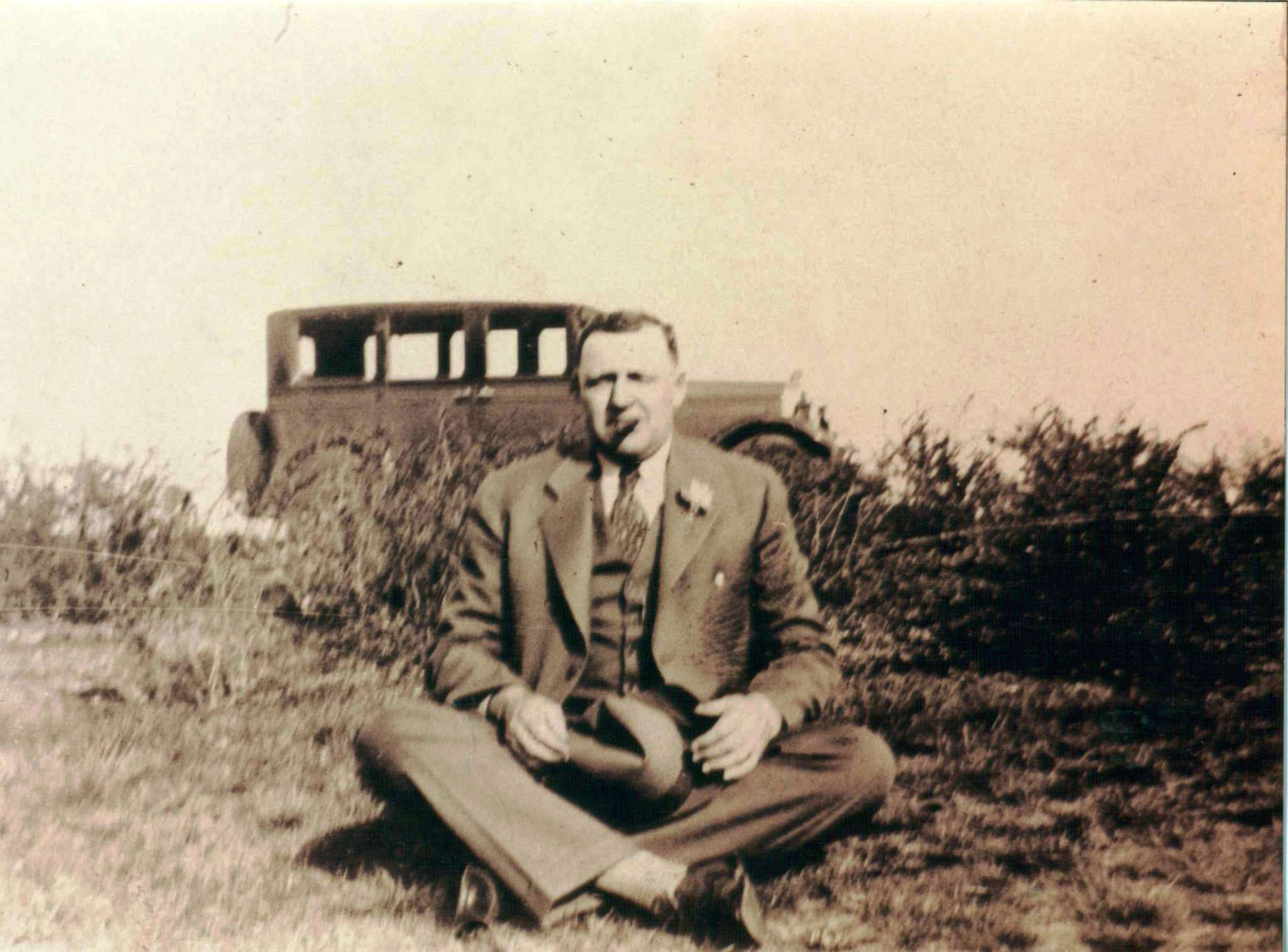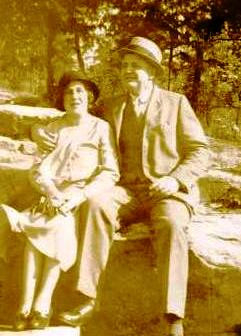CRAWFORD AND SLATEN COMPANY
My Grandfather, Clyde Slaten, and the gangster Al Capone
(Personal elements of the following narrative were taken from a letter from Pat E. Slaten (2010):
The Company: Crawford & Slaten Company, Inc. was incorporated on August 13, 1927. It was a national producer of water sprinkler systems. Clyde E. Slaten was a founding partner. There were two Crawfords (brothers) and they could not get along at all – hence the "Charlotte" office. At first, all three were working for the Grinell Company Sprinklers. Some differences between Grinnell and West Point Manufacturing led to the forming of Crawford & Slaten. West Point Manufacturing makes sheets and towels. They owned five mills at that time - Lanette, Shaemett, Langdale, Fairfax & something Shoals -- all in Alabama, below West Point, Georgia.
I don't know when the Plant (Crawford and Slaten) was built, but probably around 1925 (internet search confirms 1928 as date of creation of the company). I think they always did well, but they had some slow times during the depression. The Plant was in Atlanta’s West End - behind the old Farmers' Market off Sylvan Road. The address was 820 Woodrow Avenue. They had over one hundred employees and both of Mother's brothers worked for Dad.
The company was embroiled in an embezzlement scandal in 1930 that involved bribery to Atlanta Council members for favors. E.E. Ellis, Secretary-Treasurer of the company, was indicted for bribing and Councilman W. Chester McClendon was impeached. A slush fund was used to bribe the Council to pave Woodrow Avenue.
In 1930 the Crawford and Slaten Company was formally enrolled in the Birmingham, Alabama Chamber of Commerce.
The job that really helped establish the company was the Federal Prison in Atlanta. Crawford & Slaten won the contract to install a sprinkler system in the prison. Dad moved his office out there. The job lasted from six to nine months. While there, Dad became friends with Al Capone, the gangster, who wanted to work for Dad, but the warden wouldn't go along with it.
(Note: It was tax-evasion charges that finally stuck and landed Capone in prison in 1931. Capone began serving his time at the U.S. Penitentiary in Atlanta, but amid accusations that he was manipulating the system and receiving cushy treatment, in 1934 he was transferred to the maximum-security lockup at Alcatraz Island, in California’s San Francisco Bay. He got out early in 1939 for good behavior, after spending his final year in prison in a hospital, suffering from syphilis. Plagued by health problems for the rest of his life, Capone died in 1947 at age 48 at his home in Palm Island, Florida. --
)
The biggest job Crawford and Slaten had was in 1934, when they were contracted to install sprinklers in either the Post or Kellogg Factory. Mom, Ralph and I lived in Battle Creek, Michigan that summer in a garage apartment.
In 1943 the Crawford and Slaten Company was awarded a contract for “less than $50,000” for the construction of buildings and enclosed walkways in Floyd County, Georgia.
It’s difficult to determine what led to the eventual dissolution of the company. Competition from other sprinkler system companies may have played a hand. An interesting insight into the corporate culture of the company is found in a 1946 thesis submitted in partial fulfillment of the requirements for the Degree of Master of Science in Industrial Management by Montague L. Boyd, Jr, in the Georgia School of Technology, Atlanta, Georgia 1946:
As stated in the preface: “Almost every machine, electrical instrument or electronic device manufactured for general use, should be accompanied by an instruction book. This fact has been demonstrated to the satisfaction of most large manufacturers in the United -States and to many of the smaller Ones. There remains, however, a large number of manufacturers who distribute no literature at all with their often very complex equipment.
This is particularly true in the southern states. The attitude that such manuals are unnecessary is unfortunately prevalent among southern manufacturers and, with similar beliefs, prevents their competing successfully with other sections of the country, especially with the industrial east.”
Later in the thesis is found the following:
“Manufacturers of sprinkler systems and allied equipment form. Another group of industries in Georgia which might find a use for sales and installation manuals. Among these companies are:
CRAWFORD AND SLATEN COMPANY Atlanta. In an interview with the sales manager of this company on August 12, 1946, it was learned that at the present time no literature at all is issued on their equipment; not even sales pamphlets or brochures. The sales manager said, You just don’t sell sprinkler systems that way. His thought was that contractors were already familiar with sprinkler equipment and the methods employed in installing it. Sales activities are apparently at a minimum in this company, orders are filled as they come in, but no effort is made to sell or demonstrate the superiority of their equipment by means of manuals.”
In 1953 Crawford and Slaten completed contract work with the Alabama State Board of Education for installing a sprinkler system in Webb Hall, State Teachers College.
The last significant event in the company history is DISSOLVED BY PROCLAMATION posted in Jacksonville, Florida, which is dated by 6/28/1965.
My paternal grandfather, Clyde Eugene Slaten Sr., was born on February 24, 1890 in Grove Township, Greenville Co., South Carolina, to a long line of farmers. He was the son of John Henry Slaten and Elizabeth Rosalee Stansell. He married Fannie Pearl Sheppard, daughter of James H. Sheppard and Hattie Hill, on May 28, 1916 in Alabama. According to his draft registration form filled out in 1917, Clyde was 27 years old, worked as a steam turbine plant master mechanic with West Point Manufacturing Co.'s Duck Mill in Langdale, Alabama and was married with one child. He and Rosalee moved from Alabama to Belton, South Carolina, around 1917-1918, but didn’t stay long, moving then to College Park, Georgia. It was there that the Slaten family established roots and the 4 Slaten sons thrived. He was killed on November 24, 1941 in a automobile accident near Tullahoma, Franklin Co., Tennessee, at age 51 and was buried on November 28, 1941 in College Park, Fulton Co., Georgia.


